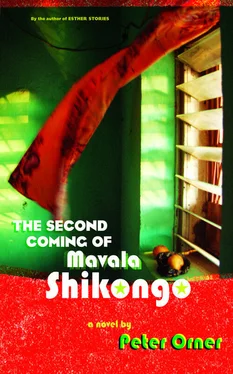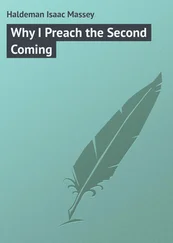“Fuck Bulgarians,” I said.
“God Save the King,” Pohamba said.
Obadiah ignored us and held forth to the afternoon. “The British vanquished the Germans at Korub Aub. In the histories, their histories, they call it a white man’s war fought in heathen Africa. As if we weren’t even here at the time. The simple truth is this: They wouldn’t have won without us. The British promised us land — our own — if we helped them.”
He kicked off one of his sandals and dug a craggy toenail into the dry earth. It was a long time before he spoke again. Afternoon fell. The mountains ahead of us blued. A cloud, miserably pallid and empty, lazed slowly by. We’d failed at hunting again.
“When it was over,” Obadiah said softly, “there was a great deal of euphoria. A delegation of native soldiers went to military headquarters to present a petition to the British on behalf of the people. It expressed gratitude to the King and reminded him of the promise of unconditional return of ancestral lands. The soldiers waited two hours before a sergeant in leather hip boots appeared.”
Obadiah paused again, gulped some wind. Slowly, he cleaned the dust off his teeth with his tongue. We did the same.
“The sergeant didn’t read it. Instead, he flung that petition across the room. The men watched it float slowly to the floor. Then the sergeant barked: ‘Your hats! All subjects must remove any and all bonnets in the presence of an officer of His Britannic Majesty George V!’ Then some galoots came and tossed that delegation out the door.”
That was it. Enough alleviation of ignorance for a hot and useless day. We followed Obadiah along a goat path, into darkness the color of a new bruise.
Aforgettable sun-worn place with too-wide streets (an old German mining town, the boom never quite happened), midway between Windhoek and Swakopmund on the coast. A popular petrol and toilet stop. There’s a tiny (still) white dorp and a location across the rail tracks, north of town, where most people (still) live. There’s a hotel, a grocery, a few shops, and some scattered bottle stores, around which revolve much of the life of the town. So unimportant a place, Pohamba said, that during the struggle SWAPO didn’t even try to blow up the post office.
Still, since we were always trying to get there, we had to pretend Karibib was somewhere. It was our Mecca, our Bangkok. Sometimes we’d go to Ackerman’s, the furniture store in the dorp, and spend the afternoon loitering on the comfortable couches on the showroom floor. Pohamba knew the salesman, a former learner named Wilbard Lilonga. The manager lived in Swakop and came in only on Saturdays. Wilbard would let us laze around. We’d read magazines or just sleep on the deep plush. Love songs gentle on the Muzak. Velour, camel, horsehair, Fontainebleau. Our feet on what Wilbard had once told us were called occasional tables. For what occasions? Ackerman’s had those plastic tints on the windows so the world outside was dyed blue. We’d loiter and watch the blue people walk down the blue street.
Pohamba leans back, his feet on the table, his head resting on the top of the ridge of his loveseat. He looks up at the ceiling.
“Wilbard!”
Wilbard doesn’t answer. He’s in the back smoking, ashing his cigarette on the carpet.
“Who buys all these couches?”
Wilbard still doesn’t answer.
“Wilbard? Wilbard!” Pohamba thunders. “Wake up, you lazy shitter! I want to know, who can pay four hundred rand for a place to sit?”
The choice is clear-cut: either the West
predominates in South-West Africa, or there will be a triumph of naked barbarism over
Western civilization… The hour is late
and the danger is great.
ANTHONY HARRIGAN,
RED STAR OVER AFRICA
This happens. Two whites alone together as we’re alone together in this tiny butchery next to the Mobil station in Karibib, and it’s back to the war, back to the glories of counter-insurgency. “Think about it.” The butcher Schmidsdorf, one bug eye a widening orb, the other squinting, whispers, “The South Africans would not use their navy because of the Soviet threat.”
“I’d like a kilo and half of pork loin,” I say. “And some lard.”
He takes the pork loin out of the case with one hand and carries it to the slicer. Pork loin’s on special. There’s a sign in the window. He glances toward the door and says, “You must understand. It wasn’t a war. It was a police action. We were fighting Sam Nujoma, not Brezhnev.”
The butcher Schmidsdorf is a very thin, mostly insane man with a flat nose and up-turned nostrils that face you like two black holes, abysses, hairy pistol barrels. He hates Commies, Jews, and kaffirs. A good butcher, Antoinette says. He even makes some cuts like a great butcher, though as a general rule, butchers shouldn’t be so bony. Engelbert Schmidsdorf, famous for his bloodwurst, boerwurst, leberwurst, fleishwurst, weisswurst, zungenwurst, and occasional schinkenwurst, as well as for his chronic wifelessness and the fact that he was one of the few German Southwesters who fought side by side with their ex-enemies, the South Africans (i.e, the British and the Boers), against the only true enemies, Commies, Jews, and kaffir terrorists. .
“You know what?” I say. “Maybe make it two kilos.”
He peeps over the counter at me. “I was stationed at Ruacana. Greenest place in this dry hole of country. And there were terrorists on every side — black shadows.”
He rubs his nose upward with the palm of his hand, and those nostrils have me in their sights again.
“Did you ever see a black with a shadow? Out there at that school? We lived in a guest house, soldiers, and we had maids, black ones in white shoes. In the mornings we went out and got killed, but didn’t we sleep well at night?” He pauses, looks down at the loin on the slicer. “Since then, I am dead.”
This happens also. The butcher says he’s dead. He fondles the pork loin on the slicer. People say it’s the bug eye that does the talking, and that it’s the other eye, the one that squints, that’s the lonely one, the one that never wants you to leave him. Antoinette says the man is so lonely he forgets to eat. All the meat under the sun and the butcher starves. There are days, Antoinette says, she’d like to drag him out to Goas and make him listen to the boys sing in church.
“How fatty your loin?” he says.
I wiggle my hand. “So-so fatty.”
He holds a slice up for my approval.
“Little more.”
He finishes the slicing and wraps up the package, holds it out to me with a bloody paw, just out of my reach. He sneezes, a small, forlorn sneeze. He wipes his nose with some bloody paper.
“How much lard?”
“Five K bucket.”
“No fleishwurst? It is very fresh.”
“Maybe next week.”
*
Outside, I wait for Pohamba. He’s next door in the China Shop buying a pair of snakeskin shoes. You could find anything in the China Shop, including Chinese people. Across the road, in front of the takeaway, I watch two drunks hold each other tenderly, like two drunks.
On the wind of talk, word carried — from Usakos to Omaruru to Karibib, and then even out to Goas — that’s no real nun. It had, people said, something to do with her mouth, or more specifically, the way she bit her lip with one jagged, vampirish incisor. People said this wasn’t the way you walked around penitent. Not a bride of Christ, this one. Her catechism is nothing but lies. It was about desire, how it eats away at you when it’s stifled, and just because you hide in the sisterhood doesn’t mean you don’t sweat the sheets. Sister Zoë, her serious, tired face, her generous hands. She was from the south, a Nama from Keetmanshoop. She ran from her mother. She ran from Keetmanshoop. Anybody would run from Keetmanshoop, where the sun does nothing all day but lash your neck and look for plants to kill. At least up here we’ve got three scrawny trees a kilometer.
Читать дальше












